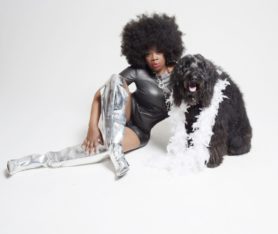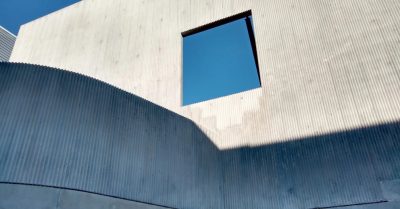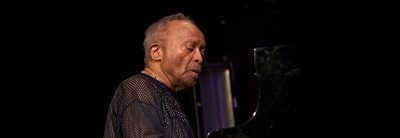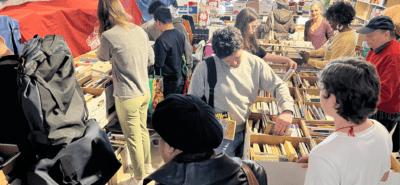Illustration by Jess Ulman
Soul singer Bette Smith on bringing light into darkness
Bette Smith is a Brooklyn born and raised singer of rock and soul. Her voice evokes comparisons to Etta, Aretha, Tina, Macy and more; her style is fabulous funk, all boots and boas and buoyant Afro. And her name is pronounced “Betty”—like Rubble, not Midler
Her second album, “The Good, the Bad and the Bette,” was released this fall. On one of the last days warm days, we sat down for a socially distant drink outside The Double Windsor off the circle near Prospect Park West to discuss the new record—a personal, yet accessible pastiche of balladry and belting—life during coronavirus, being an artist during social unrest, and a whole lot more.
Our conversation was edited for space and flow:
We first met in 2018, backstage at the Bowery Ballroom, when you were touring on behalf of your debut album, “Jetlagger…”
I remember it well.
Now, it feels like there’s something bigger here with “The Good The Bad And The Bette.”
Well, the first album was more about my quest, my wanderlust, hence the title. It was more exterior, about my outside dreams of traveling the world, connecting with my roots wherever they were. This album is a journey within, particularly my relationship with my mother, which was very complicated.
I see that, particularly in “Whistle Stop,” which is just gorgeous and the train metaphor is so evocative and rooted in American mythology. I assume “Don’t Skip Out On Me” is also about your mother.
It is.
Now, not all of the songs involve your mother and not all of them are ballads.
No. No. Not at all. I really wanted to rock out, too. I love to rock out. A lot of this was tapping my early Ike & Tina Turner, that Memphis, Mississippi rock sound.
Who did you grow up listening to?
Mahalia Jackson. She was my mother’s favorite singer. And other gospel singers as well, as my father was the choir director of a church, which is where I was brought up singing.

Bed-Stuy baby (photo by Shervin Lainez)
You’re a Bed-Stuy girl.
I am a Bed-Stuy girl, and we had Play Streets in the summer, you know, where they would just block it all off and party. I remember all these Southern R&B and soul groups would come up to play, and we’d rock into the late hours of the night.
Were your parents disappointed by the secular music?
Oh, No! They were in the house. It was a block party. They had free babysitting.
When did you start actually singing secular music?
Not until I left home in my early 20s and moved into Manhattan. Got my own pad. I was working as a receptionist, using my voice to answer telephones, and I started doing background vocals, and then I started doing my own shows around the Village. And I kept going to clubs and doing sit-ins, and just hanging out with other musicians.
How did you get your break?
Jimbo Mathus [of Squirrel Nut Zippers] was my break. I was performing at a Fifth Avenue street fair in early 2015, and I was doing some Aretha covers, attracting quite a crowd. Someone there was a friend of Jimbo. Some emails went back and forth; my manager sent some demos to Jimbo, and he flew up to meet me, said he wanted to work with me, but he also said, ‘I want you to record down in Mississippi,’ and I was like, ‘Missawhat?’
Had you ever been to the South?
Never! I was nervous. But Jimbo had a great team down there, and he thought if he got me out of my element it would be worth my while. So I went to Mississippi and ”Jetlagger” was the result.
Jimbo didn’t produce “The Good The Bad And The Bette.”
No, we went to the same studio, Dial Back Sound in Water Valley, Mississippi, but the producer this time is Matt Patton of Drive-By Truckers along with Bronson Tew who co-owns the studio with Matt and plays drums, but Jimbo was around and played on some of the tracks. We signed a three-record deal with Ruf Records, which is a German-based label that has been around for, like, 25 years and has all sorts of American musicians.
How have you been doing during this crazy year?
Well, we finished the album just before Covid, which was a blessing. I was really determined not to let myself get in any state of despair. I used the power of transcendental meditation to keep focus. I write three pages every day in my journal. I fast-walk in Prospect Park on a regular basis. At first I was in denial of it, and then I was like I’m going to accept that it’s happening, but I’m not going to go under the water; I’m going to stay above the water. I’m going to float.
Do you as a woman of color and an artist feel any obligation to address systemic racism or the social unrest around?
I feel like Bob Marley did: There’s a lot of darkness in the world, and you have to light up the world with your love. I was given this gift. It wasn’t arbitrary; it’s definitely a gift, and it would be remiss of me to keep silent. What I have to do is add light to the world. I don’t see it as a racial thing. It’s between hate and love; light and darkness. My goal is to be a light wherever I go. Spread love. Not hate. Always, throughout history, darkness is put out by light. I want to be part of that light.
I look around from where we sit right here on Prospect Park West, and you may be the only person in sight who fits that description of being born and raised here. How has Brooklyn changed over the course of your life?
I grew up in a gang-torn Bedford-Stuyvesant back in the day. I’m OK with the fact that the neighborhood has gotten a little more gentrified, given the comparison of it being full of violence. We have to keep vigilant; we have to be tolerant; we have to remember that this nation is a melting pot. It’s the difference between ours and all other countries. It’s the variety of people, the diversity, that makes America beautiful. I love people.
You might also like 


























